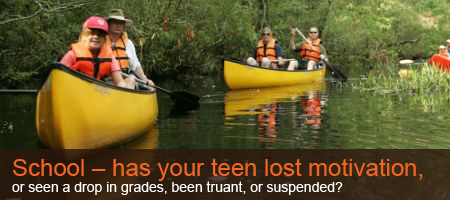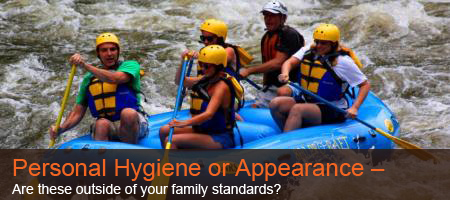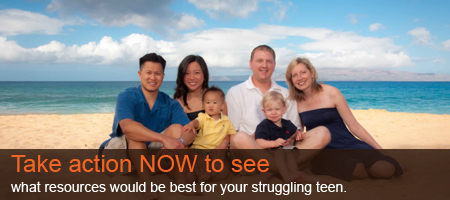Program Options - Definitions & Descriptions
Is your Child struggling? Are you feeling overwhelmed, and not sure what to do? If you have found us you have probably already spent hours looking for help. The search is over! Whether your Child is struggling at home, school, or socially; if it’s low self-esteem, emotional or behavioral problems, or just a good kid headed in the wrong direction – we can help!
The information below provides a look at various options to consider. To know what is best for your child Take Action Today – either Call 1-877-242-6793 and speak with one of our Professionals; or Take our quick 20 Question Pre-Assessment; or Complete the Request Help Form ... and get help TODAY!

Residential Treatment Centers / Programs:
- A Boarding School environment in a secure setting with a focus on Individual Treatment Plans and Therapy supported in all activities, life skills, and experiences throughout the program.
- Treatment Plans and Psychiatric Care are updated weekly; Individual Therapy is provided 1-2x per week; Skill development is taught and practiced daily; School to Therapy ratio is usually 50/50, and is provided and supervised by a Clinical Team and licensed professionals.
- Length of stay varies between 6 to 12 months with high impact to help shorten the stay, but provide for a long enough time for the Student to internalize long lasting behavior change.
- The best RTC's provide a healthy balance between Behavioral & Therapeutic; Academics & related educational experiences; Life Skills & Character Development; and Healthy Living through good fitness and nutrition. They are able to effectively create a Home like environment while still maintaining great structure in a secure setting.
Therapeutic Boarding Schools:

- A Boarding School environment in a secure setting with a therapeutic component relying upon a Therapeutic Milieu approach rather than a Clinical Treatment approach.
- Therapeutic Milieu is a structured group setting that relies on the group as the force for change; and the elements of positive peer pressure, trust, safety and repetition to help group member's work through their psychological issues.
- A safe and trusting environment allows group members to test behavior changes and discuss deep secrets without fear of judgment and reprisal. Plus, they build empathy and understanding of how people can handle difficulties.
- While new skills may not be learned, previously learned, but forgotten skills are rekindled and practiced in a safe setting. The School to Therapy ratio is typically 75/25, and is provided and supervised by licensed professionals.
- Length of stay is generally between 10 to 15 months; as it takes time for the Student to feel safe enough to trust the environment and process, and allow the force for change to occur.
Residential Youth Development Programs / Schools:
- A typical Boarding School setting with a secure and safe environment designed to assist at risk Students to meet the challenges of adolescence and young adulthood.
- Highly structured with a series of activities and experiences to help Students develop their personal social, emotional, mental, and physical abilities. A spiritual component is available in many Schools; and in fact, some of the best are considered faith-based schools.
- Length of stay varies between 6 to 10 months with a rolling enrollment (can enroll at any time) based on individual needs.
Transitional Boarding Schools:

- A typical Boarding School setting with an open campus, varying degrees of structure, and length of stay similar to the traditional 9 month school year. The focus is structured living and academics.
- Psychiatric Care and/or Family & Individual Therapy is contracted through an outside source as needed, required, or promised prior to enrollment. The School must be careful not to over-step its bounds as strict guidelines and licensing is required when providing these services.
- School to Therapy ratio is 85/15 or less.
Regular / Traditional Boarding Schools:
- A typical Boarding School with an open campus, varying degrees of structure, and length of stay and enrollment similar to the traditional 9 month school year.
- **No therapy, and do not (should not) enroll "at risk" students. This can be a good option AFTER a struggling Teen gets the help he/she needs in one of the behavior change options (Residential Treatment, Therapeutic or Youth Development, or Wilderness or Outdoor Therapeutic).
Wilderness and/or Outdoor Therapeutic Programs:
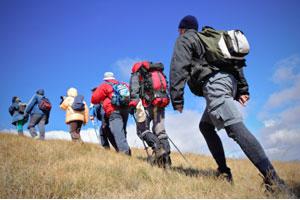
- An outdoor environment that provides high impact and stimulates effective and quick behavior adjustments; and is often the ideal first step in an integrated treatment approach intended to start the process by laying a solid foundation and helping the Teen or Young Adult become receptive to longer term treatment when necessary.
- The two most popular models: Clinical Wilderness/Outdoor - clinically focused, targeting specific behaviors, individualized treatment, daily group therapy, and additional assessments. Experiential Wilderness/Outdoor - personal growth experiences, positive adult role models, and often more adventure based. The best Programs will integrate the two models effectively.
- Through powerful Experiential Exercises (the process of making meaning from direct experience) and Role Modeling the Student learns the capacity to be patient, to persevere when discouraged, to try again when they initially encounter failure, and to appreciate the amenities in their lives they have previously taken for granted.
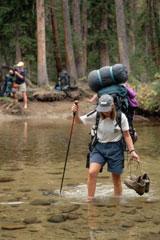
- Treatment is highly individualized and focuses primarily on the individual; and sets the stage for continued treatment in a Residential setting and providing the opportunity to engage in Family Therapy in preparation for the return home; or when appropriate or possible the transition from an Outdoor Program to Home with a strong Out-Patient/Aftercare Plan for maintaining structure and receiving Family Therapy.
- Students completing well run Wilderness/Outdoor Programs are likely to require less time to complete a continuing Residential Program; and, on occasion they are able to transition directly Home without the need for a Residential placement.
- Length of stay varies from 50 to 100 days, then transition Home or to longer term program as appropriate. The best Programs will provide a complete assessment and recommendations for the appropriate transition, whether it is Home or a continuing Residential placement.
In-Home Intervention Programs:
- There are a variety of In-Home Programs and the AFP Team will help the Parent select the most appropriate following completion of the AFP Assessment and Team Review.
- In-Home Programs are less expensive than Out-of-Home placements, and can be effective if used early enough in the Intervention Process. There are many to chose from, and it is important to use the most appropriate one to avoid wasting valuable time and money.
- In-Home Programs can also be used very effectively along with an Out-of-Home Placement.
Other Programs / Schools often considered:
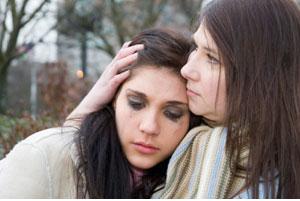
- Boot Camps: Boot Camps are often considered by Parents when they are really looking for a Wilderness and/or Outdoor Therapeutic Program. A true "Boot Camp" is more punitive than experiential or therapeutic. AFP subscribes to the belief that "punishment" is reserved for the Court Ordered/Adjudicated Programs, and even then some of the privately run Court Ordered Programs provide an experiential and possibly therapeutic component. **Ask your AFP Counselor how to intervene if your Child might be ordered by the Court to one of the State run programs. AFP may have some great options for you.
- Military Schools: This can be a great option for a Teen if (a big IF) the child is interested in possibly making the Military a career. It is not the answer for a struggling teen that needs a true behavior change environment geared for "real life." It is also a very good option AFTER a struggling Teen gets the help he/she needs in one of the behavior change options (Residential Treatment, Therapeutic or Youth Development, or Wilderness or Outdoor Therapeutic). **Ask your AFP Counselor about this option.
To know what is best for your child - Take the First Step in Getting YOUR Child Back -
- Call 1-877-242-6793 and speak with one of our Professionals;
- or Take our quick 20 Question Pre-Assessment;
- or Complete the Request Help Form ... and get help TODAY!
An Answers For Parents Counselor is Standing by - ready to help!



